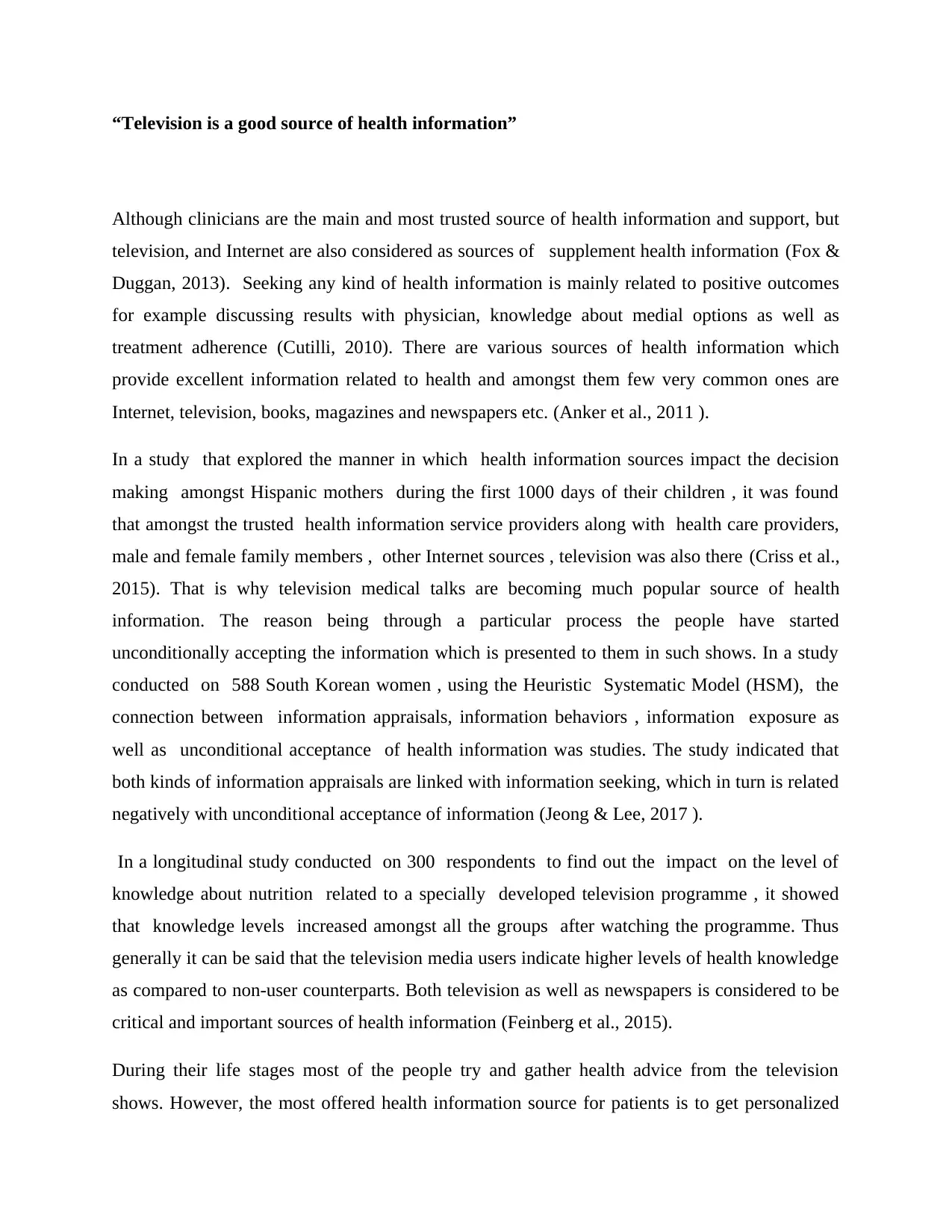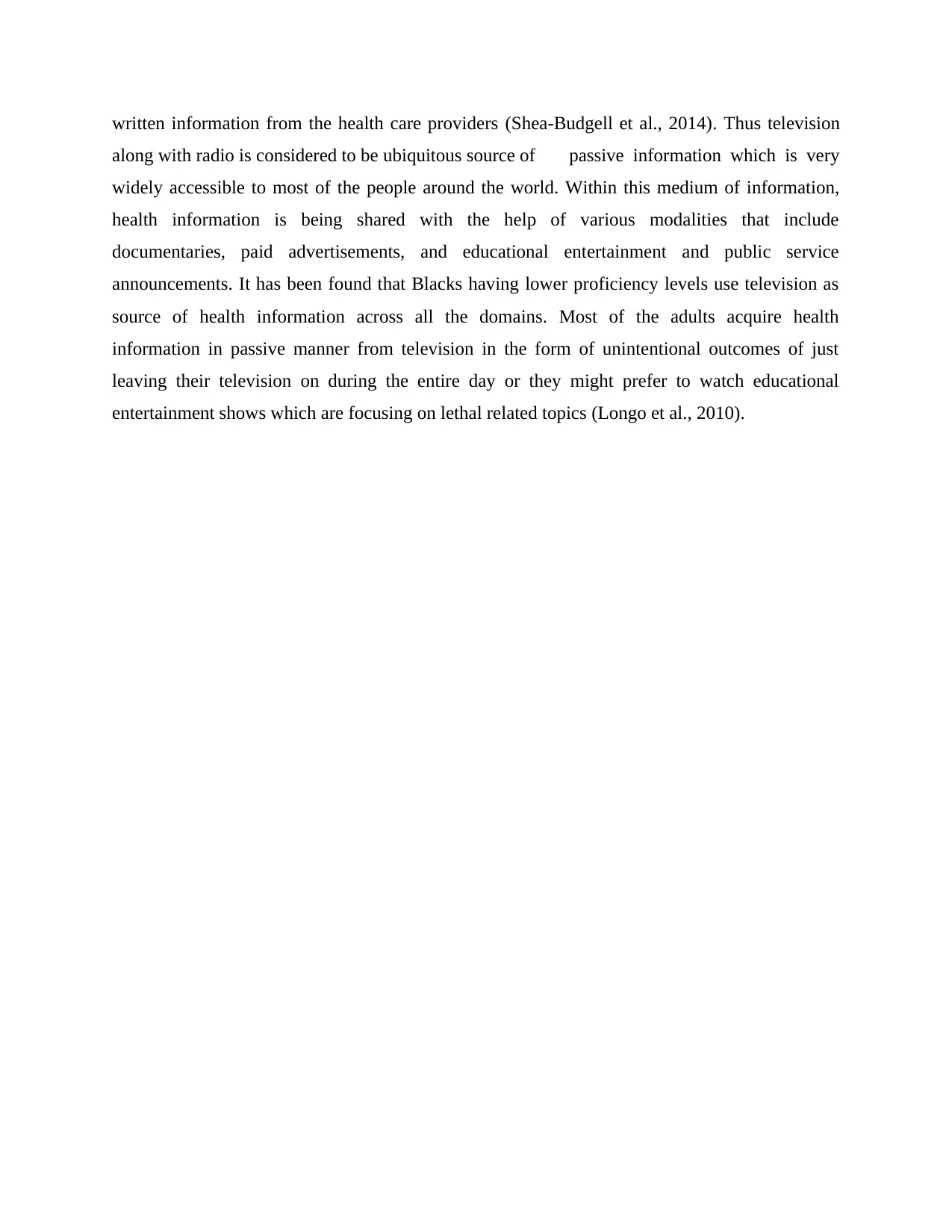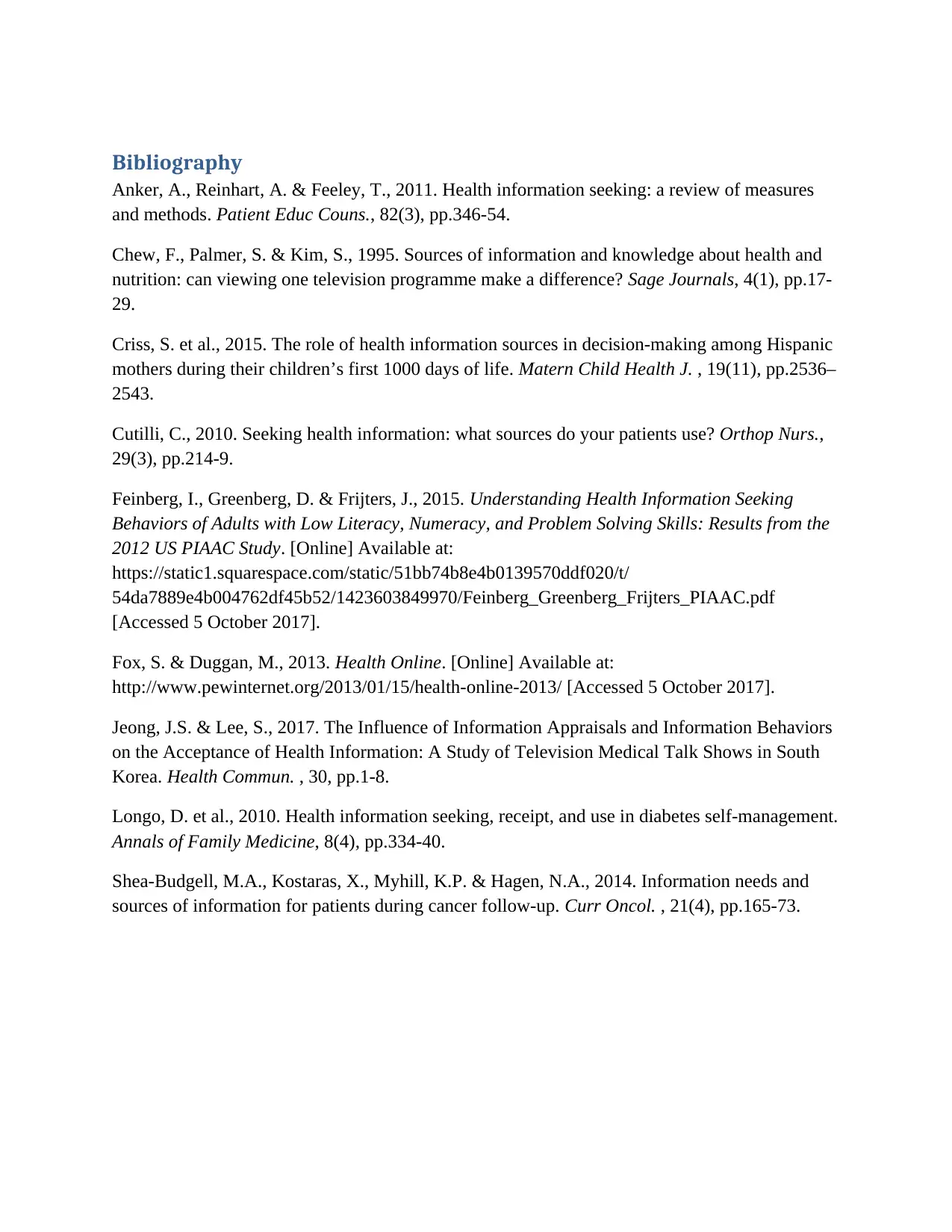Television: A Reliable Source of Health Information? A Critical Review
VerifiedAdded on 2020/03/16
|3
|929
|59
Essay
AI Summary
This essay examines the role of television as a source of health information, acknowledging that while clinicians are primary sources, television and the internet also play significant roles. It explores how individuals seek health information from various sources like the internet, books, and newspapers, highlighting television's popularity through medical talks and its influence on knowledge levels, particularly among those with lower literacy levels. The essay references studies on information appraisal, seeking behaviors, and acceptance, including a longitudinal study on nutrition knowledge gained from television. It also considers television's passive role and the use of various modalities, such as documentaries and advertisements, in disseminating health information. The paper cites several studies and articles to support its analysis of the impact of television on health information acquisition and its implications for public health.
1 out of 3









![[object Object]](/_next/static/media/star-bottom.7253800d.svg)